All Topics
- Alchemizing Music Concepts for Students
- Artist Spotlight
- artium gift card
- Artium Maestros
- Artium News
- buying guide
- Carnatic Music
- Devotional Music
- Editorials by Ananth Vaidyanathan
- Film Music
- Guitar
- Hindustani Classical Music
- Indian Classical Music
- Indian Folk Music
- Insights
- Instruments
- Karaoke Singing
- Keyboard
- Kids Music
- maestros
- Music Education
- Music for Kids
- Music Industry
- Music Instruments
- Music Legends
- Music Theory
- Music Therapy
- Piano
- piano guide
- Success Stories
- Tamil Film Music
- Telugu Film Music
- Time Theory
- Tools
- Uncategorized
- Vocal Singing
- Vocals
- western classical music
- western music
- Western vocal music
Artium Maestros, Film Music, Western vocal music
Celebrate the Birthday of Sonu Nigam with Top 10 Songs That Made Him The Voice of India
Celebrate the Birthday of Sonu Nigam with Top 10 Songs That Made Him The Voice of India
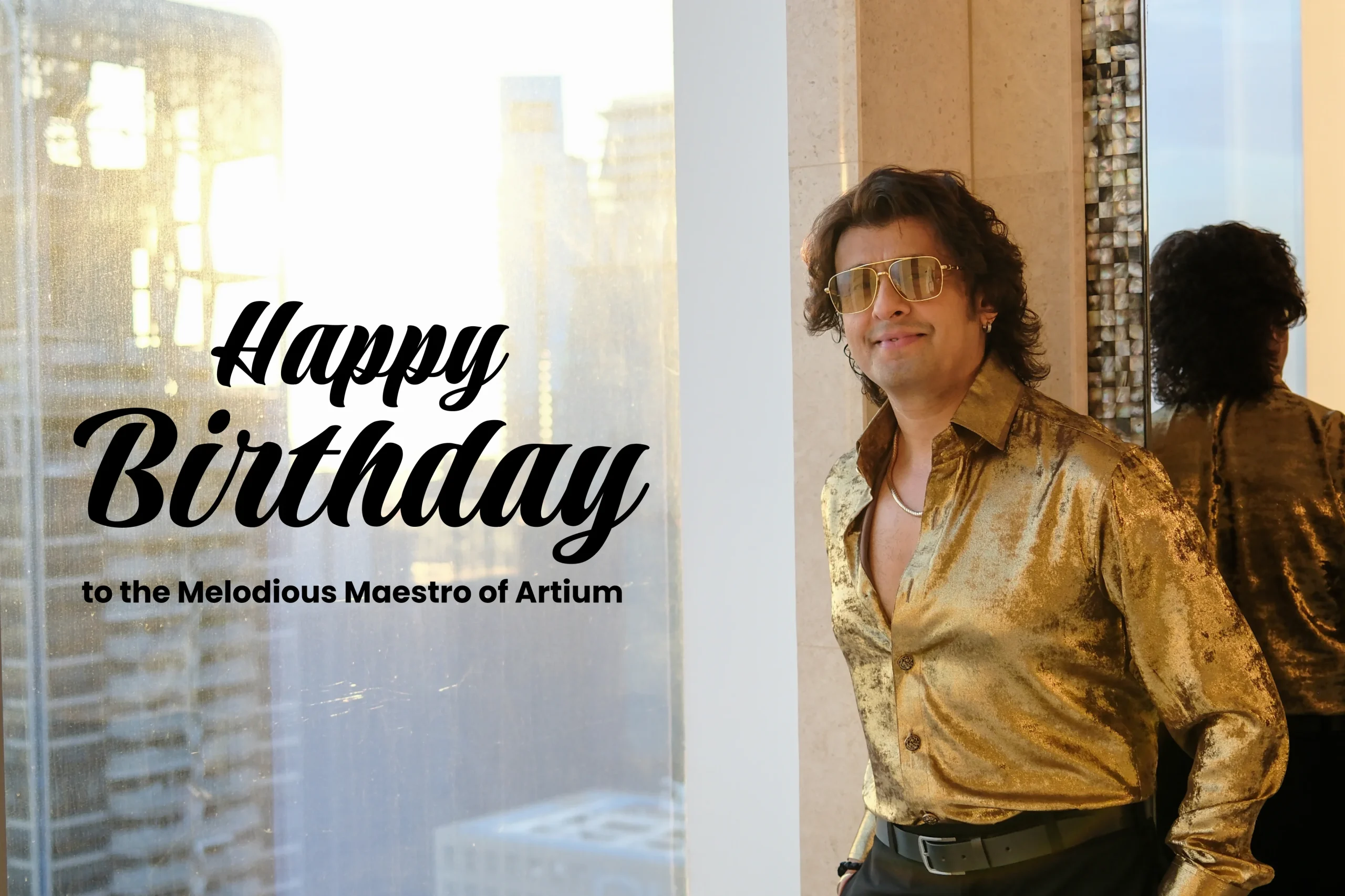
Table of Contents
In the delicate weaving of human emotion, some melodies emerge not just as songs but as profound reflections of the soul. “Abhi Mujh Mein Kahin, Baaki Thodi Si Hai Zindagi” from the film Agneepath, rendered by the peerless Sonu Nigam, isn’t merely a line; it’s a whisper of enduring hope, a fragile thread woven through life’s deepest uncertainties.
It’s the sound of a spirit clinging to the last embers of light, expressing that quiet, resilient strength found when all else seems to fade, a testament to the music’s ability to touch the very core of our being.
July 30th marks the birthday of a voice that has, for decades, resonated with millions of hearts – the one and only Sonu Nigam. From the tender strains of melancholic romantic songs and ghazals to the electrifying energy of a dance anthem, his versatility is legendary.
He is more than just a singer; he is a storyteller, an emotion-evoker, and the voice of a generation. On this special day, we celebrate not only his indelible talent but also the unwavering passion and dedication that have made him a living legend in the world of music.
Before we get into his list of Sonu Nigam songs, let’s explore the essence of what truly made him the ‘Voice of India.’ His unparalleled vocal techniques are not merely unique but utterly one-of-a-kind, setting him apart as a singular talent in the realm of singing.
His Voice: The Craft Behind the Melodious Maestro
Sonu Nigam’s singing is renowned for its skillful and often generous use of vibrato.
Vibrato, a natural oscillation of pitch during a sustained note, is a vocal technique that adds expressiveness and richness to a singer’s tone.
Sonu Nigam is well-known for his versatile vocal techniques, which include:
- Exceptional control over breath
- Dynamics
- Phrasing
These skills allow him to deliver performances that are both powerful and nuanced. He is also recognized for his mastery of vibrato, his ability to modulate his voice, and his talent for conveying emotion through his singing.
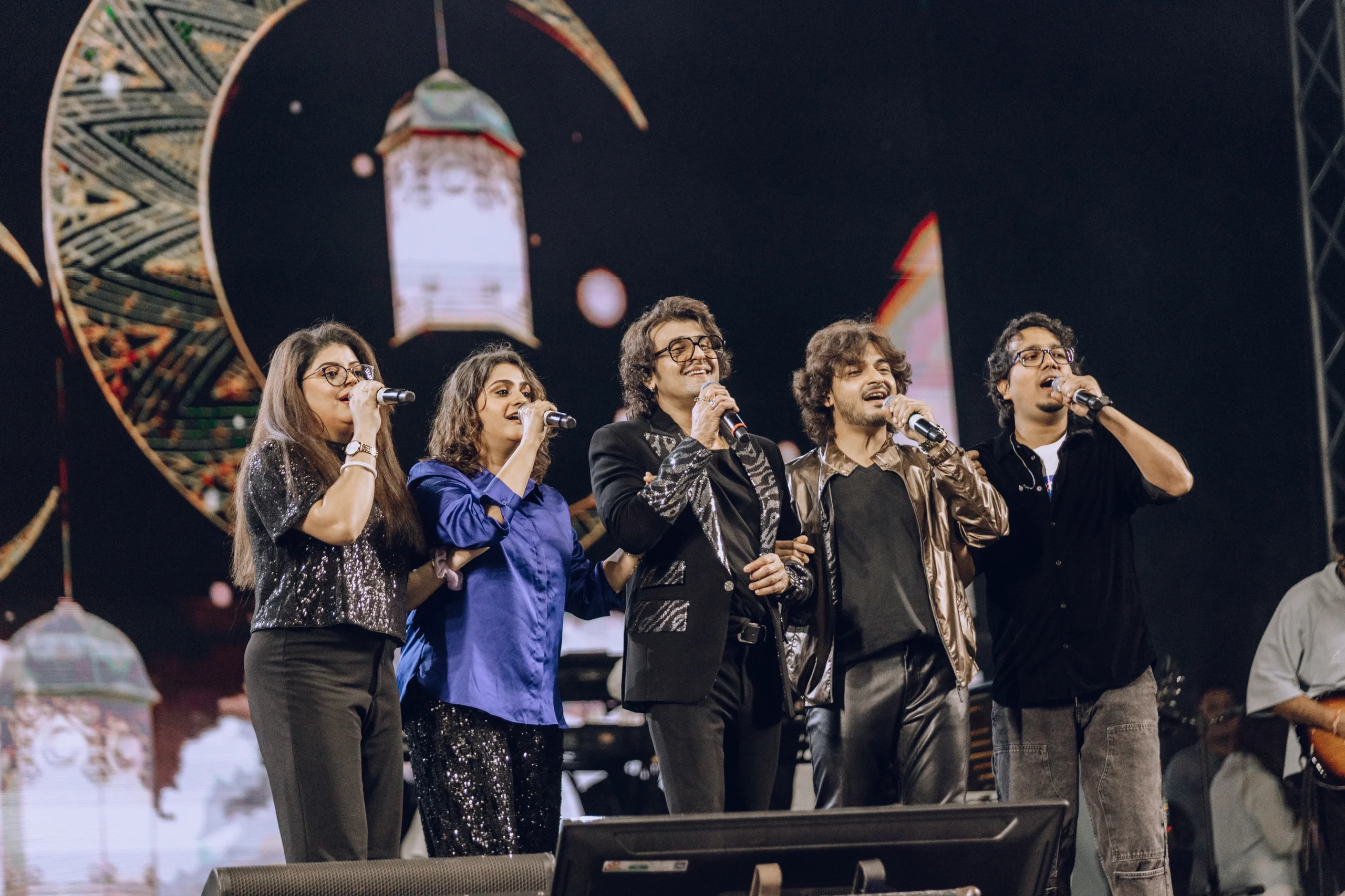
He is celebrated as one of India’s finest playback singers for compelling reasons. His exceptional vocal quality stems from a unique blend of innate gift and meticulous cultivation:
- Natural Gift Meets Rigorous Training: He possesses a naturally powerful and adaptable voice. This raw talent was refined through extensive formal classical music training from a young age, building a rock-solid foundation in vocal techniques, breath control, and unerring pitch accuracy.
- Unmatched Versatility & Emotional Depth: Sonu Nigam seamlessly transitions across genres, from classical to pop, and shines in multiple languages, including Hindi, Kannada, and Bengali. More than just technical control, he masterfully conveys profound emotions, making each performance deeply resonate with listeners.
- Mastery Through Experience & Innovation: Years in the industry have honed his craft, allowing him to absorb diverse musical influences and collaborate with countless artists. He consistently employs innovative vocal techniques and embellishments, adding a distinct richness that makes his voice instantly recognizable and enduringly popular.
These elements, combined, make his voice stand out in all Sonu Nigam songs and contribute to his enduring popularity in the Indian music industry.
A Voice Without Limits: The Spectrum of His Talent

“Dil Dooba” from Khakee and “Kal Ho Naa Ho” from Kal Ho Naa Ho are two golden melodies beautifully rendered by him. These Sonu Nigam songs perfectly showcase his versatility, ranging from peppy romantic numbers to deeply emotional ballads that have touched millions of hearts.
His artistry truly knows no linguistic limits, and his contributions to Sonu Nigam’s Kannada songs stand as a shining testament to his unparalleled versatility. He has given his golden voice to countless memorable Kannada songs, becoming a beloved household name in Karnataka, just as he is across India. Beyond Kannada, his remarkable flexibility allows him to effortlessly switch between Hindi, Bengali, Odia, Gujarati, Tamil, Telugu, Malayalam, Marathi, Punjabi, and even Nepali, showcasing a diversity in singing that is rare among his peers.
This range isn’t just about singing in different tongues; it’s about embodying the very soul of each language and its musical style. Whether it’s the classical nuances required for a devotional track, the raw energy for a pop anthem, or the delicate emotion for a romantic ballad, Sonu Nigam adapts with effortless grace.
His vocal dexterity, characterized by impeccable control, wide melodic range, and nuanced expression, makes every song he touches uniquely his own, solidifying his status as one of India’s most versatile and cherished voices.
Sonu Nigam’s first brush with fame came with the music notes of “Accha Sila Diya” from the 1995 film, Bewafa Sanam. Today, this revered Bollywood playback singer has recorded over 6,000 songs in 32 languages, leaving a mark on the world of music.
He has delivered chart-topping hits across a range of styles:
- Romantic ballads
- Classical Songs
- Devotional Songs
- Pop Songs
Sonu Nigam’s voice transcends Bollywood, reaching hearts through his soulful renditions in numerous regional languages.
1. Sonu Nigam Western Song
2. Sonu Nigam Western Song
3. Sonu Nigam Kannada Song
4. Sonu Nigam Kannada Song
5. Sonu Nigam Tamil Song
6. Latest Song by Sonu Nigam
10 Sonu Nigam Songs That Make Your Heart Sing All Over Again
As we celebrate the maestro’s special day, let’s check out these Sonu Nigam top 10 songs that made him ‘The Voice Of India.’ A voice that defined emotions, showcasing the vibrant range of his albums such as Deewana, Jaan, Yaad, Mausam, and Chanda Ki Doli, which have all become major hits.
Let’s take a look at a few of the hit songs of Sonu Nigam.
- Kal Ho Na Ho
A heartache wrapped in hope, Kal Ho Na Ho whispers of love that lingers like a bittersweet ode to living fully in the present, knowing tomorrow is an uncertain promise.
It’s the romantic realization that every heartbeat, every shared glance, every soft touch should be cherished, as the iconic lines remind us, “Har Ghadi Badal Rahi Hai Roop Zindagi” (reminds us life changes every moment), and “Chahe Jo Tumhe Poore Dil Se, Milta Hai Woh Mushkil Se” (One who loves you wholeheartedly, is hard to find).
This song doesn’t just tug at heartstrings; it encourages us to embrace love and life with an open heart, before the moment slips away.
- Yeh Dil Deewana
Yeh Dil Deewana paints love as a feverish paradox—where the heart defies reason, dancing between ecstasy and agony. Wild yet tender, free yet chained. Sonu Nigam’s velvet voice, brimming with restless passion, mirrors the heart’s chaos.
The lines ‘Dil Kaisa Bepeer Hai, Woh Ek Tasveer Hai’ reveal love’s duality: a painless portrait in memory, yet an unbreakable shackle (‘Main Kehta Hoon Todd De / Kehta Hai Zanjeer Hai’). The lover pleads to break free, but the heart clings, proving love’s depth lies in its inescapable grip.
Sonu’s soaring vocals amplify this tension—between surrender and rebellion, making the song an anthem for those drunk on love’s sweet torment.
- Aisa Deewana
The lines “Aisa Deewana Hua Hai Yeh Dil” reveal a heart so consumed, it blurs the line between devotion and obsession. It echoes Sufi longing. His emotive highs and lows mirror the chaos of love: euphoric yet aching, selfish yet selfless.
Aisa Deewana” paints love as divine madness—where the lover, intoxicated by passion, pleads to the heavens (“Rab Se Tujhe Maanga Karein”), as if his beloved is a prayer granted.
Sonu Nigam’s velvet voice, trembling with emotion, amplifies the song’s raw vulnerability—his shifts from soft yearning to soaring intensity mirror the duality of love. The depth lies in love becoming worship, where desire transcends the earthly, making the beloved a sacred destiny—a fleeting, fiery romance—eternal in its fervor.
- Ishq Bina
“Yeh Dard Hai Ya Dardon Ki Dava
Yeh Koi Sanam Ya Aap Khuda”
“Tumne Ishq Ka Naam Suna Hai
Humne Ishq Kiya Hai”
A quiet rebellion against those who theorize love without drowning in its storms. Sonu Nigam’s delivery, soft yet defiant, makes these words ache and uplift, like a lover’s diary entry: equal parts prayer and protest. The song’s magic lies in its fleeting forever—romance laced with the ache of ‘what if,’ where every moment holds the promise of eternity.
Anand Bakshi’s lyrics are poetic and evocative, conveying the song’s themes of love and affection. The song “Ishq Bina,” which translates to “Without Love,” emphasizes the idea of selfless love.
“Vaada ye pakka…ishq ishq. Dhaaga yeh kaccha…ishq ishq.” However, beyond the romantic essence, don’t these lines resonate with our own lives? We have journeyed so far from our 90s selves, yet in our pursuit of personal growth and adulthood, haven’t we all left a piece of who we once were behind?
- Saatrangi Re
Saathrangi Re”, sung with ethereal grace by Sonu Nigam, is a love letter to the intoxicating, almost surreal nature of passion. The song’s mystique lies in its blend of desire and existential longing, where love feels like a “khwaab ya parchhayi” (dream or mirage), fleeting yet vivid.
The lines “Jab paas hai tu, ehsaas hai tu” capture love’s silent presence—an emotion so deep it becomes a sixth sense. Meanwhile, “Tere jism ki aanch ko chhute hi, mere saans sulagne lagte hain” paints intimacy as life itself—breath syncing to a lover’s warmth.
The haunting “Maut ki god mein sone de… rooh mein jism dubone de” reveals love’s duality: a surrender so complete, it blurs the line between ecstasy and oblivion.
Sonu’s velvet voice, oscillating between restraint and yearning, mirrors the song’s theme—love as a seven-hued mystery, beautiful, painful, and eternal.
- Deewane Hoke Hum Milne Lage Sanam
Sonu Nigam’s Deewane Hoke Hum Milne Lage Sanam paints love as a surrender, where ‘Aankhon se ruth kar neendein chali gayi’ whispers of sleepless longing, and ‘Muqaddar mera sanwar jaane do’ pleads destiny to weave its magic.
The middle lines—‘Dil jo kahe woh kar jaane do… Had se mujhe guzar jaane do’—unfold as a lover’s reckless abandon, begging for boundaries to dissolve.
Sonu’s sweet yet impassioned delivery heightens the romance, blurring the lines between devotion and madness. The climactic ‘Deewane ho ke…’ captures love’s essence: a collision of souls, where reason fades, and only passion remains. A melody of yearning, where love isn’t just felt—it’s lived beyond limits.
- Chori Kiya Re Jiya
Sonu Nigam’s Chori Kiya Re Jiya is a playful yet profound confession of love, where stolen glances become stolen hearts. The line ‘Pal pal har pal jiski chaya apna paar lagiya re’ speaks of love’s intoxicating shadow, clinging to every moment.
When he sings ‘Ho tujh par jaan humne lutayi hai, tab jaake tu sang aayi hai,’ it reveals love’s gamble—surrender before reciprocity. The climax, ‘Tune toh pal bhar mein chori kiya re jiya,’ captures love’s swift, thieving magic.
Sonu’s honey-wrapped voice revolves between mischief and longing, elevating the song’s duality: love as both a sweet heist and a soul-deep surrender. A timeless ode to love’s irresistible, unplanned theft—where the heart is both the thief and the stolen.
- Main Agar Kahun
“Main Agar Kahoon,” sung by Sonu Nigam from the Om Shanti Om movie, isn’t just a song; it’s a tender, almost hesitant confession of priceless love, it borders on disbelief.
The relevance of Sonu Nigam’s style here is paramount; his inimitable vocal control and emotive subtlety imbue every word with a fragile vulnerability that perfectly captures the song’s essence. He navigates the delicate balance between awe and adoration, making the listener feel the weight of such overwhelming affection.
The depth of lines like “Abb Tumhara Mera Ek Hai Karwaan, Tum Jahan Mein Wahan” (Now your path and mine are one, where you are, there I am) speaks to a complete surrender and intertwining of destinies, a journey now shared irrevocably. When he croons, “Humsafar Meri, Apsara Ho Tum Ya Koi Pari, Tareef Yeh Bhi To Sach Hai Kuch Bhi Nahi” (My companion, are you an angel or a fairy? Even this praise is nothing compared to you), it’s the ultimate humility of love – where even the grandest words fall short of the beloved’s true magnificence.
And finally, “Tumko Paya Hai To Jaise Khoya Hoon” (Having found you, it’s as if I’ve lost myself) beautifully articulates the dizzying, all-consuming nature of true love, where the self dissolves into the beloved, a timeless paradox that only the heart can truly grasp.
- Soniyo
Sonu Nigam’s “Soniyo” is a tender plea, a whisper of longing love for companionship in life’s journey. His signature singing style—marked by its nuanced emotionality and pristine clarity—gives the song an irresistible, almost vulnerable charm.
The lines, “Raho me, tanha hu saath le chal yu / Sang tere safar poora karu” (I am alone on these paths, take me with you / So I may complete this journey with you), embody the deepest human desire for connection.
This isn’t merely romantic yearning; it’s a universal echo of the soul’s quest for a partner to share life’s adventures. The depth lies in its simple yet powerful articulation of love as a guiding force, a solace against solitude. Sonu Nigam’s gentle rendition evokes every unspoken hope, every quiet plea for a bond strong enough to transform a solitary path into a shared, beautiful expedition. It’s a testament to love’s power to complete us.
- Chhoti Chhoti Raatein
Sonu Nigam’s rendition of “Chhoti Chhoti Raatein” from the Tum Bin movie is a masterclass in conveying the exquisite ache of longing. His voice, brimming with vulnerability, perfectly embodies the song’s essence.
“Betaabi kaa aalam dekha hai tanhai kaa mausam dekha hai
Pal pal halchal hoti hai dil mein, jabse tujhako jaanam dekha hai”
These lines reveal the transformation wrought by love. They speak of a life once marked by restlessness and solitude, now irrevocably altered. The moment the beloved is seen, the heart explodes with a constant “halchal” (stir/commotion), replacing emptiness with an intoxicating turbulence.
It’s a deep, soul-altering connection. The subsequent “pyar mein aakhir kya nahi hota” (what isn’t possible in love?) emphasizes love’s boundless power.
Sonu Nigam’s signature expressiveness and control over subtle nuances imbue these words with a universal resonance, evoking the depth of this overwhelming emotion where desire, peace, and joyous chaos coexist. It is a way to love’s ability to dismantle and rebuild our inner world.
Learn Online Hindi Film Music at Artium Academy
At Artium, you don’t just learn songs; you learn from the best. Our Hindi Film Music courses are meticulously curated by Sonu Nigam, ensuring you receive unparalleled guidance from top-class music teachers.
Whether you dream of mastering the emotional depth of his ballads or the energy of his chartbusters, our expert instructors and world-class structured curriculum provide the perfect platform to sing, understand, and truly live the music that defined generations.
Explore the rich traditions of classical music with expert-led Indian music classes or explore versatile Indian music lessons tailored for all skill levels. If you’re drawn to contemporary styles, our Western vocal classes offer training in vocal techniques and performance.
Whether you’re a beginner or advanced learner, our comprehensive music lessons cover theory, practice, and creativity. Join a leading online music school where passionate instructors guide you through personalized 1:1 learning, helping you master Hindustani music, Carnatic music, Bollywood, or Western genres in a supportive, inspiring environment.
Sonu Nigam says, “ Sangeet isn’t just tunes; it’s the language of the soul, a language anyone, anywhere, at any age can learn today. The beauty of music is its universality – it speaks to every heart, regardless of age or where you are. Learning Sangeet, for me, was a lifelong evolution, and now, the digital world breaks down all barriers, inviting every soul to learn this art form online.
My riyaaz began as a child, a deep dive into the ocean of ‘sangeet’ that shaped my soul. Now, through Artium Academy, the doors to learning music are open to every young or old soul. Music truly speaks a language beyond words, connecting hearts across the globe. Let your emotions find your voice through music, wherever you are.”
Listen to Sonu Nigam’s Masterclass at Artium Academy’s Youtube Platform
FAQs on Sonu Nigam Birthday Songs
Sonu Nigam’s birthday is on July 30th.
Sonu Nigam’s singing journey began incredibly early; at just three years old, he joined his father on stage to sing Mohammed Rafi’s “Kya Hua Tera Wada.” He moved to Mumbai at 18 years old (around 1991-1992) to pursue a Bollywood career, initially performing at weddings and parties with his father before gaining widespread recognition.
The evergreen songs of Sonu Nigam includes:
- Kal Ho Naa Ho – Kal Ho Naa Ho (Hindi)
- Ab Mujhe Raat Din – Deewana (Hindi)
- Nee Navvula Thelladana – Manasantha Nuvve (Telugu)
- Ninnindale – Milana (Kannada)
- Enadhuyire – Bheema (Tamil)
- Sandese Aate Hain – Border (Hindi)
- Saathiya – Saathiya (Hindi)
- Munbe Vaa (Male Vocals) – Sillunu Oru Kadhal (Tamil)
- Nagumomu Thaarale – Sri Ramadasu (Telugu)
- Haal Aisa Nahin – Sparsha (Kannada)
Sonu Nigam has won several prestigious awards, including the National Film Award for Kal Ho Naa Ho, multiple Filmfare Awards (Hindi & South), IIFA, Zee Cine, and Screen Awards. He’s also received the Padma Shri (2022) and state-level honors like the Karnataka and Tamil Nadu State Film Awards, celebrating his iconic contribution to Indian music.
Sonu Nigam’s singing style stands out for its emotional depth, uses vibrato, vocal versatility, and flawless control. He effortlessly blends classical training with modern expression, adapting to various genres and languages. His ability to convey emotion, nuanced voice modulations, and rich tonal quality make his performances unforgettable and deeply resonant with listeners.
Artium Academy’s connection with Sonu Nigam goes beyond his support as an investor—he serves as the Patron‑in‑Chief of the academy and has designed and curated several music courses (such as Hindi film music, ghazal, devotional, and Western vocals) grounded in his expertise and training.
His courses emphasize 1:1 online music classes, structured vocal techniques, and exposure to diverse musical styles. Backed by a team of certified teachers and supported by other maestros, such as KS Chitra and Ananth Vaidyanathan, these offerings stand out for their pedagogy and performance-based curriculum.
Yes — Sonu Nigam designed and certified Artium Academy’s Western Vocal Music course. As Patron-in-Chief, he infused his expertise into the curriculum, crafting it for learners across different genres.


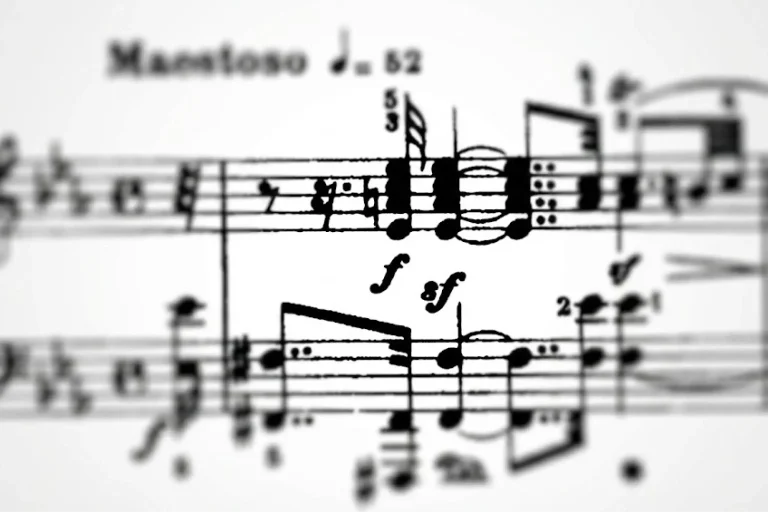
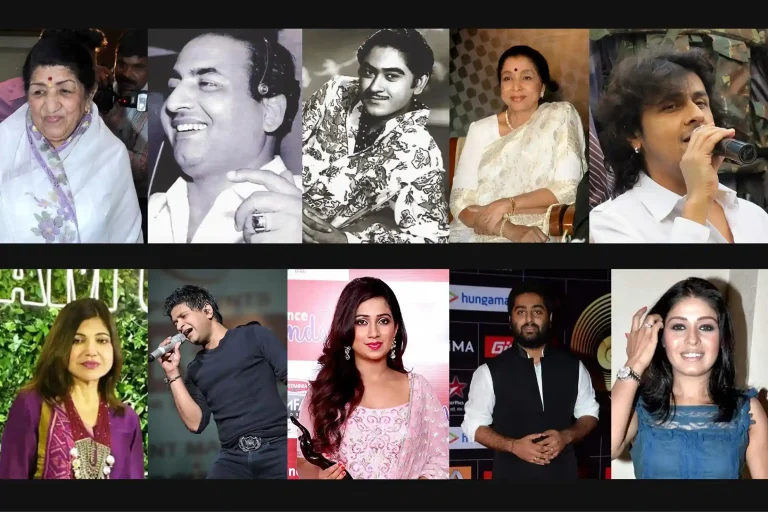
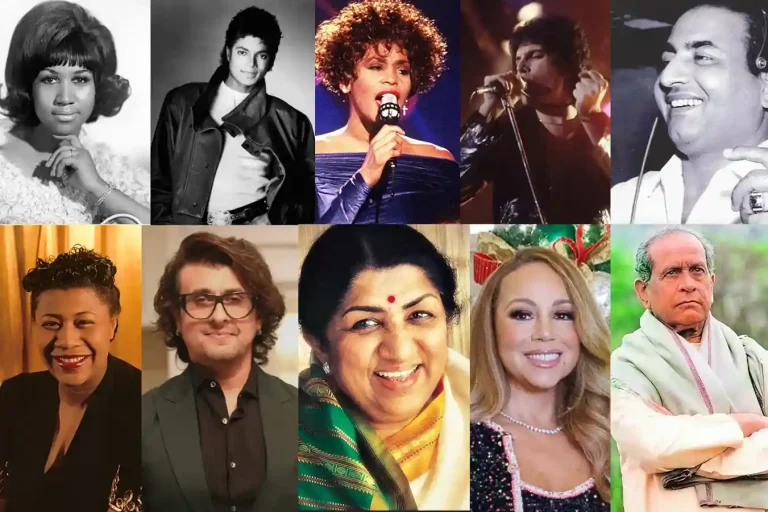



Very nice article, each song has been explained beautifully, a very good tribute to Respected Sonu Nigam Sir.